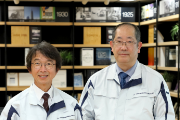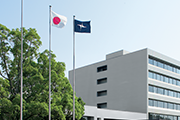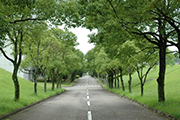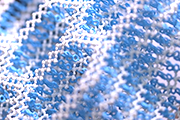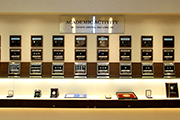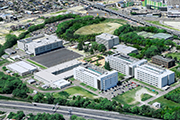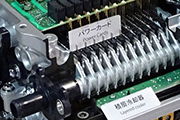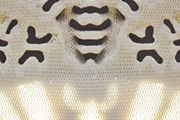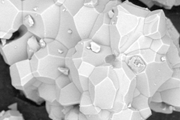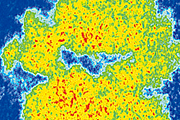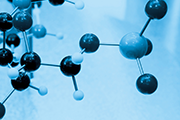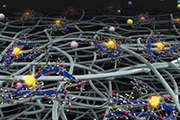Demonstration of the world’s most durable dye-sensitized solar cells
with an outdoor lifetime of over 12 years
A study conducted by Naohiko Kato et al. in collaboration with Aisin Corporation was published in the ACS Sustainable Chemistry & Engineering.
Solar cells using organic materials, including dye-sensitized solar cells (DSCs) and organic–inorganic hybrid perovskite solar cells, are lightweight and offer attractive designs; thus they are suitable for installation on roofs, windows, and walls. However, DSCs are less durable than inorganic solar cells, such as silicon solar cells, limiting their applications to indoor use in mild environments. In this study, we developed two approaches to improve the durability of DSCs. The first was the hydrophobic surface passivation of TiO2 electrodes, leading to an increase in the resistance of the DSCs against infiltrating water. The second approach involved the use of suitably configured DSC modules to suppress the biased distribution of iodine ions in the electrolyte. The DSC modules developed in this study are durable and have been in operation outdoors for over 12 years, which is the longest lifetime of outdoor DSC modules reported so far. This result is a great step toward outdoor uses of organic-based solar cells.
Title: Demonstration of 12 Years Outdoor Working of Highly Durable Dye-sensitized Solar Cell Modules Employing Hydrophobic Surface Passivation and Suppression of Biased Distribution of Iodine Ions
Authors: Kato, N., Tanaka, H., Takeda, Y., Higuchi, K., Nakajima, J.
Journal Name: ACS Sustainable Chemistry & Engineering
Published: March 24, 2023
https://doi.org/10.1021/acssuschemeng.2c06665













